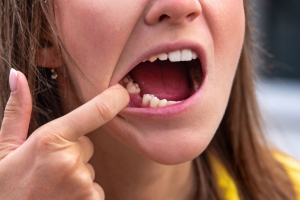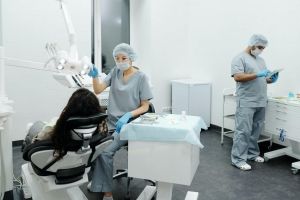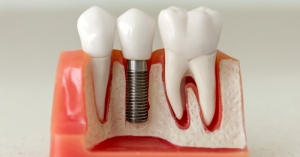Dentures—what would the world of dentistry be without them? They're the answer to faulty, damaged, or lost teeth. However, the only drawback is the adjustment period, which can be quite uncomfortable.
That's especially the case when it comes to eating. People eat every day, so even if you lose one or two teeth, you won't stop eating, much less when you've got replacements lined up. However, it's never the same with dentures, as the first few weeks come with issues like pain and occasional slip-ups.
So what do you do? Well, you'd have to start by adjusting your eating pattern—not necessarily your feeding frequency but primarily how and what you eat. You also have to adapt to a more mechanical diet. Here are some tips from Dorking Dental Centre to take note of.
5 Key Dietary Tips for New Denture Wearers
So, what's in it for your feeding patterns when you start wearing dentures?
1. Start with a Mechanical Diet
The key is to start with foods that help you take things slow. Tough foods should be avoided and instead replaced with mechanical foods that don't require excessive chewing. Mechanical foods here mean foods made by blending, chopping, grinding, and mashing. This makes them easy to chew and swallow while you get used to your dentures.
2. Avoid Spicy Foods
Just like foods at high temperatures, you need to be careful of meals that are spicy due to the sting and burning sensation they can bring. It's even more important to avoid spicy foods if you have a case of soreness.
3. Remember To Chew Slowly and Evenly
When getting started with dentures, it's a good idea to take it slow with solid foods. Your dentures tend to slip if too much pressure is applied on them. Hence, you should remember not to chew too quickly, and at the same time, you should chew evenly with both sides of your mouth.
If you chew with one side of your mouth, your dentures are very likely to slip out and fall off.
4. Be Cautious of Your Food's Temperature
For some foods and drinks, there's the thrill that comes with eating them hot. Some meals don't just hit the same when they've gone warm or cold. However, this is a thrill you will need to dial down on.
The thing is, dentures have an insulating feature, meaning you won't know how hot a meal or drink is immediately, and when you do realise it, it might be too much for you to handle. So, a good tip is to get a sip or taste any drink or food before indulging.
5. Avoid Sticky Meals
Foods like candies, peanut butter, and bubble gum are a no-go when starting your new life with dentures. While they provide you with your guilty pleasures, they leave your dentures and gums very vulnerable. For instance, these foods can get stuck between dentures and gums, leading to irritation and plaque build-up.
Wrapping Up
Living with dentures for the first few weeks can be uncomfortable, so don't be surprised when that happens. However, you should adjust your diet to prevent the slight discomfort from turning into a bigger complication.






